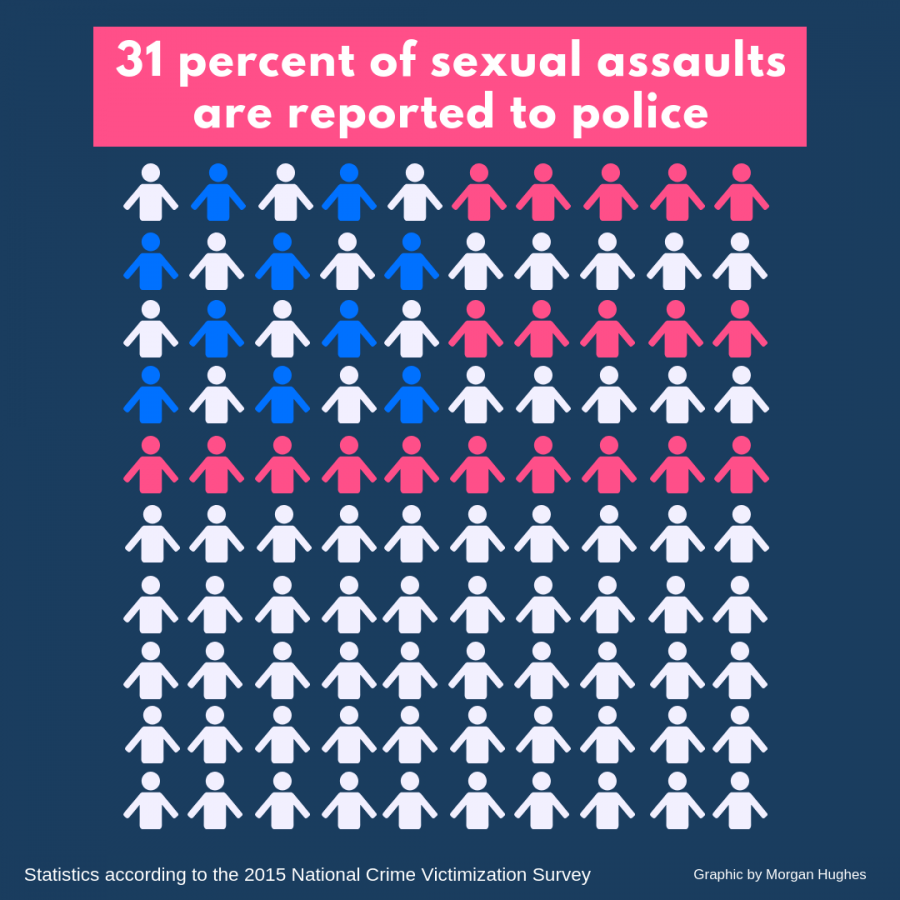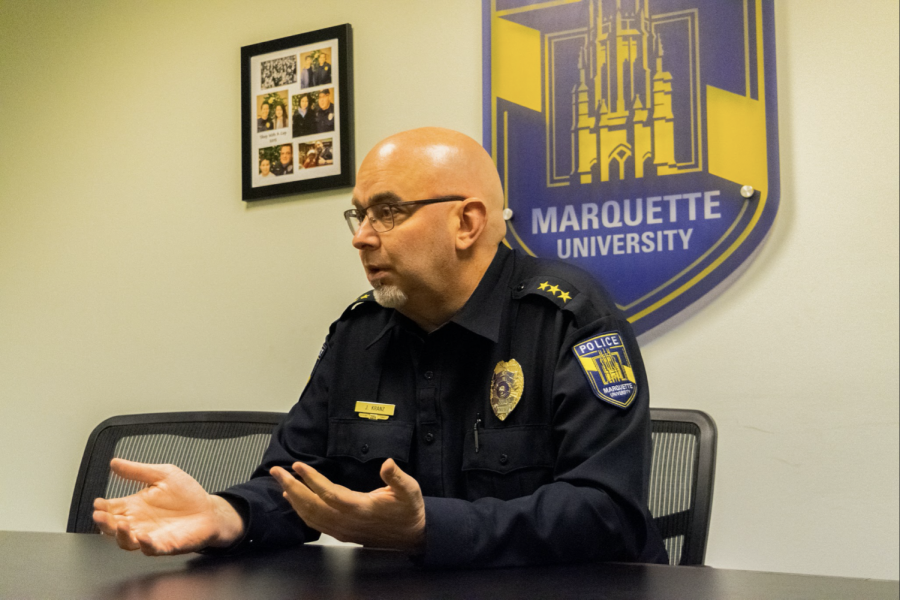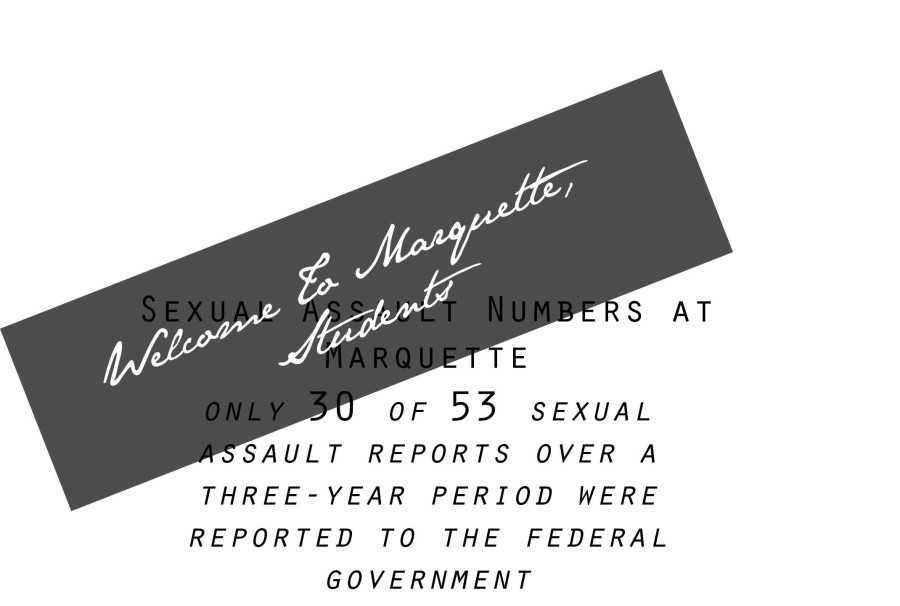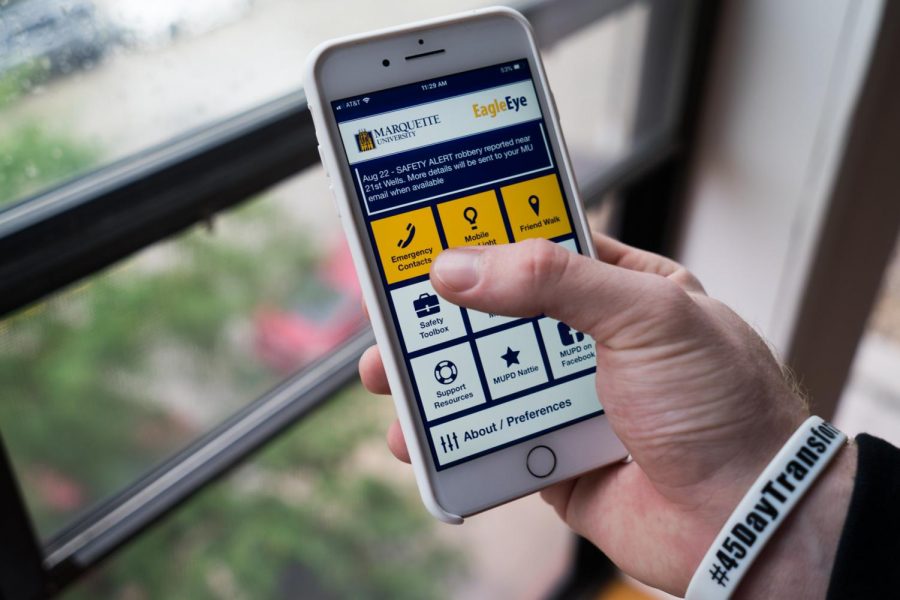Crime on or around an urban campus like Marquette’s is a daily reality.
Word-of-mouth accounts of criminal activity spread quickly, but official notices disseminated by authorities like the Department of Public Safety help to separate the facts from the hearsay.
But other than the widely distributed notices of robberies and violent crimes posted on buildings across campus, as well as text and e-mail alerts for more serious threats, students are limited in their access to crime reports.
Online crime logs are available from many schools’ safety departments. At Marquette, students may be aware of only the DPS reports printed in the Tribune.
[Click here to view an interactive map displaying the DPS reports from the past few weeks.]
Students have a right to access campus crime records through the Clery Act, which mandates schools to release certain crime information and allow access to past crime records. Many schools, including Marquette, give more information than the federal statute requires them to report. But when it comes to the accessibility of those reports, Marquette lacks transparency.
Complying with Clery
The Jeanne Clery Disclosure of Campus Security Policy and Campus Crime Statistics Act — or the Clery Act — requires all universities and colleges participating in any federal financial aid programs to record crimes on or around campus.
University police and public safety departments must follow four main safety initiatives: writing an annual safety report, keeping a crime log, giving timely warnings and compiling crime statistics.
DPS has made a plethora of crime information available to students, but the information is not conveniently accessible to the entire Marquette community.
In accordance with the Clery Act, DPS publishes an annual crime report, gives timely warnings of crimes considered an immediate threat, keeps a crime log that reports all crimes within the past 60 days, and records crime statistics from the three most recent years.
DPS posts its annual crime report online, with the crime statistics for the three most recent years clearly posted in the report.
In order to provide the most immediate timely warnings, DPS sends out a university-wide e-mail or sends text messages if there is an immediate threat to campus safety.
Accessibility vs. privacy
Where DPS lacks in transparency is in its crime logs. Currently, the crime logs that DPS keeps are not available on the Web. In fact, the only way to see the 60-day running crime log is by personally visiting DPS’s headquarters in the 16th Street Structure, where the log is kept on a clipboard behind the front desk.
Paul Mascari, lieutenant for DPS, said the report is not posted daily online in order to preserve accuracy.
“When you rely on people to constantly update reports, there is a certain amount of human error that can occur,” said Mascari.
But within this paper report, DPS details more crimes than are required by the Clery Act, according to Russell Shaw, associate director of DPS.
Shaw said DPS wants to post a report online, but also must maintain each student’s privacy by keeping student names and other personal information private.
Mascari said DPS is considering implementing an online tool that would display recent crimes in the area to students. But this is a step that will take a great deal of planning and testing in order to protect student privacy, according to Mascari.
“We are looking at the functionality of it and seeing if it is a possibility down the road,” Shaw said.
Mascari said DPS might eventually update expanded crime information online instantly while maintaining student privacy. Shaw said DPS would need approval from various university officials to post this crime log online.
Security On Campus, a national nonprofit that strives to prevent crime on campuses and ensure the Clery Act is being followed, endorsed the Report Exec Professional software, a program designed to aid in reporting Clery-required crime information while protecting students’ privacy. DPS uses Report Exec Enterprise, a similar program developed by the same company as Report Exec Professional.
“(Report Exec Professional) was designed with the privacy provisions of the Clery requirement in mind, so privacy shouldn’t be an issue,” said S. Daniel Carter, the director of public policy for Security On Campus. “If anyone using the software has these concerns they should check with the vendor for instructions on how to activate and use these features properly.”
Carter said Security On Campus is not looking into lobbying the federal government to require online logs due to some departments with only “a single security officer that may not have the IT infrastructure or expertise to facilitate this easily.”
According to Mascari, the Enterprise automatic report only gives students the date, time, incident type and location of the crime.
When asked if DPS has any intention of posting the report using this automatically updated log online, Mascari said his department wants to give students a more detailed log than the automatic report that Report Exec provides.
DPS has no timeline for when crime logs will be posted online.
‘Above and beyond’ Clery
Although Marquette has not yet made the move to online crime logs, schools around the country have embraced the technology.
The University of Wisconsin-Milwaukee Police Department regularly posts timely warnings and monthly crime logs on the department’s Web site.
The timely warnings are updated on a continuous list and primarily consist of burglaries and robberies that occur in the campus area. The monthly crime log lists incidents ranging from theft to drug possession. Both are accessible with just a few clicks of a mouse and fully honor student privacy.
“We think it gives students a clear way to know what is going on on campus,” said Michael Marzion, Chief of Police for the UW-Milwaukee Police Department.
Marzion said their department has been doing this for more than four years.
At DePaul University in Chicago, the Public Safety Department has a continually updating list of crimes committed on campus, including the date of the crime, the location of the crime and the offense. Like Marquette and UWM, DePaul also reports crime occurring in the area surrounding its campuses in addition to university property.
“It was in the interest of full disclosure,” said DePaul spokesperson John Holden about initiating the online crime activity list. “We go above and beyond the requirements of the (Clery) Act by reporting crimes that occur on non-university property.”
DePaul has been posting campus crime activity online for approximately five years, Holden said.
On a broader scale, the University of Colorado at Boulder’s police department offers its community the use of an online interactive crime map in which people can view and map reports of crime recently occurring on and around campus.
Students can search crime by type or date range and then see where the crimes occurred on the interactive map.
Revamping the reports
Security On Campus advocates for university security departments to continuously improve their crime reporting methods.
“We encourage institutions to not only post their crime logs online, but also to create a daily opt-in subscription list that allows campus community members to receive a copy in their e-mail inbox every day in addition to non-emergency case updates,” Carter said.
Mascari said he intends to make sure Marquette’s crime logs are included on the redesigned DPS Web site, giving as much information as possible while maintaining student privacy.
Until then, the only way to access this information is by walking into DPS headquarters and asking for the physical document.








